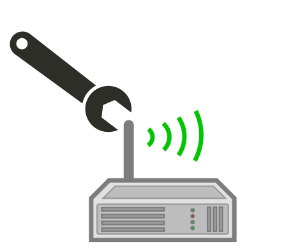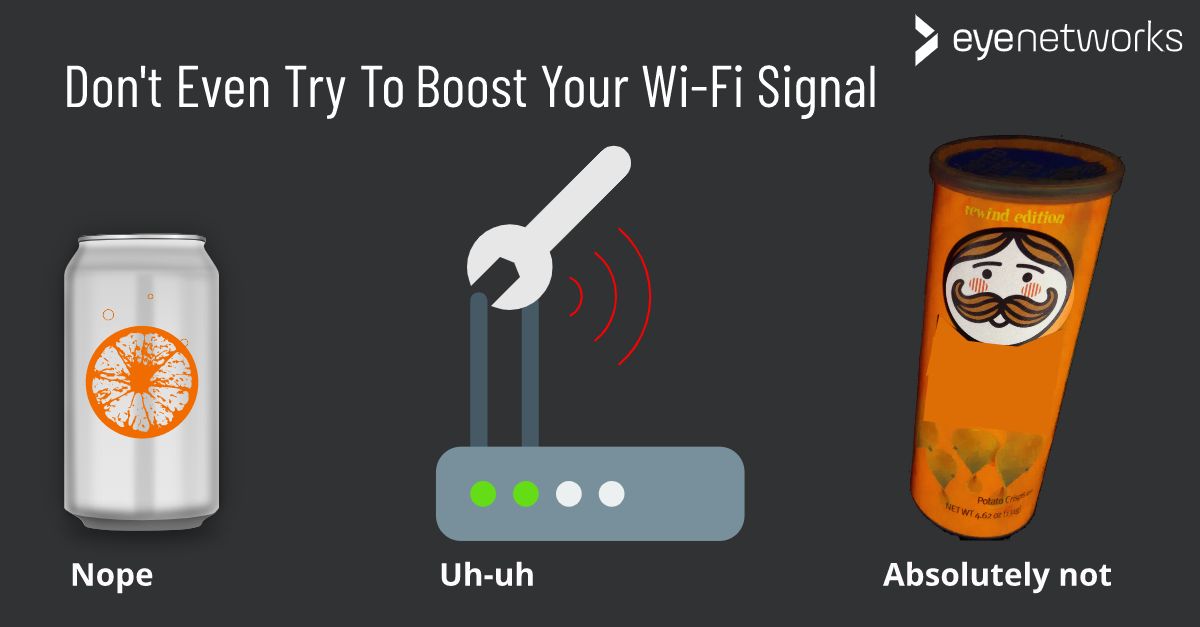Do not create your own wifi “amplifier” if you are unhappy with coverage. Here are 3 solid reasons not to, and 3 pieces of advice on what to do instead.
Have you been given advice on how to “boost” or amplify the Wi-Fi signal from your router? Maybe in a YouTube video or online article that makes it look simple and convenient?
It is perhaps simple, but it is not really convenient–you can mess things up both for yourself and for others by attempting this.
1. It Is Quite Possibly Illegal

Actually amplifying your router or extender’s wireless signal to extend its reach runs the risk of being illegal in many countries. Local laws in for example Norway clearly specify both what frequencies and which signal transmission strength are allowed for indoor and outdoor wireless networks.
clearly specify both what frequencies and which signal transmission strength are allowed for indoor and outdoor wireless networks.
Any wireless device sold in a country with such laws must be approved in accordance with the local legislation. This means that the equipment you can buy will usually already be using the maximum permitted transmission strength under the law. Fiddling with this yourself will then quickly take you over the legal limit. (You can also run into problems if importing equipment from abroad yourself, for similar reasons.)
Any solution causing the transmission strength limit to be exceeded, would then be illegal. Typical examples of hacks that may cause this are:
- Extending the antenna using a soda can, Pringles tube, or similar.
- Substituting a stronger antenna.
Note that while Wi-Fi extenders or repeaters are sometimes referred to as Wi-Fi “amplifiers”, there is no actual amplification of signal strength involved. The repeater/extender simply repeats the signal from the router to create a new network that extends wireless coverage.
2. You Will Sabotage Your Neighbors
By boosting the Wi-Fi signal, you can extend its reach, which sounds like a good thing. However, the frequency band with the longest reaching signals (2.4 GHz) is also the band with the most interference / wireless “noise”. Extending your signal further will therefore contribute to even more interference for your neighbors.
3. You May Sabotage Yourself
For a wireless connection to work well, both sides of the connection need to be able to reach each other. Even though you may succeed in making your router transmit a stronger signal that reaches further, there is no guarantee that the signals returned by your wireless clients—computers, smartphones, and so on—will be able to reach the router. In this case, all you have achieved through signal boosting is sabotaging yourself by making your coverage less predictable than it was in the first place.
What To Do Instead of Wi-Fi Signal Boosting
So what can you do instead, when the signals are looking too weak?
Here at Wi-Fi Central you will find plenty of advice on mapping and improving your coverage in ways that are both fully legal and completely free. This article is a good place to start: Stop Clearing Away Your Wi-Fi Signals.
Article by Geir Arne Rimala and Jorunn Danielsen
